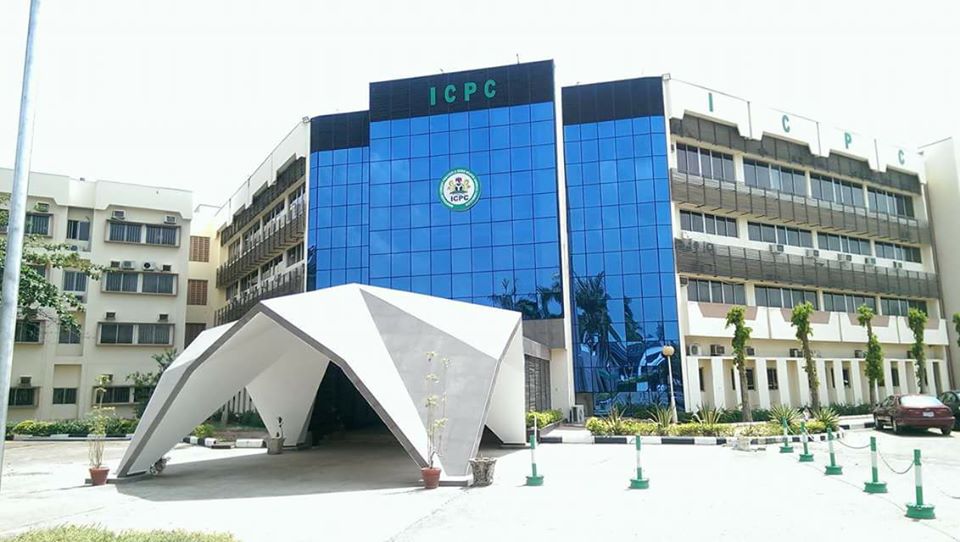Tasks before the new ICPC Chairman
President Bola Tinubu on December 13, 2023 administered the oath of office on Dr Musa Adamu Aliyu, SAN, as the new Chairman of the Independent Corrupt Practices and other related offences Commission (ICPC) Dr Aliyu, who became the fifth chairman since the inauguration of the commission in September 2000, took over from Professor Bolaji Owasanoye. […]

President Bola Tinubu on December 13, 2023 administered the oath of office on Dr Musa Adamu Aliyu, SAN, as the new Chairman of the Independent Corrupt Practices and other related offences Commission (ICPC)
Dr Aliyu, who became the fifth chairman since the inauguration of the commission in September 2000, took over from Professor Bolaji Owasanoye.
Since its creation 23 years ago the commission has strived to live up to its mandate eventhough many Nigerians would be hard to give it a pass mark.
Section 6 (a-f) of the ICPC Act 2000 sets out the duties of the Commission to, among others, receive and investigate complaints from members of the public on allegations of corrupt practices and in appropriate cases, prosecute the offenders, examine the practices systems and procedures of public bodies and where such systems aid corruption to direct and supervise their review.
Ex-Senate President Lawan tasks FG on livestock investment
Tinubu, Gombe gov felicitate with Ganduje at 74
The Acts also mandates the commission to instruct, advise and assist any officer, agency, or parastatal on ways by which fraud or corruption may be eliminated or minimised by such officer, agency or parastatal, advise heads of public bodies of any changes in practice, systems or procedures compatible with the effective discharge of the duties of public bodies to reduce the likelihood or incidence of bribery, corruption and related offences. It is also to educate the public on and against bribery, corruption and related offences, enlist and foster public support in combating corruption.
Although in the last 23 years since its inauguration the commission has tried to meet these duties it is doubtful if much has been achieved given the high level of corruption prevalent in the country.
This is largely evident in daily reports of serious cases of corruption being reported across the country which is further buttressed by reports by international bodies on corruption prevalence in Nigeria.
According to the 2023 Transparency International Corruption Perception ranking, released in February by the Transparency International Nigeria was ranked 150th out of 180 countries ranked in the report. Although the report said this was an improvement over the previous year’s report it still shows that Nigeria has a lot to do to arrest the menace.
The ICPC also in its annual Nigeria Corruption Index (NCI) Survey says there is a high level of corruption in all spheres of sectors especially in the three arms of government and the private sector in the last two years.
At a validation meeting of the survey the Provost of the Anti-Corruption Academy of Nigeria, Prof, Tunde Babawale, said findings put corruption level within the Legislature, Judiciary and Executive arms of government and private sector at 42 per cent between 2022 and 2023
“All the sectors have been found culpable and found to be highly corrupt, the legislature the judiciary, the executive all of them have been found to be corrupt.
“Although at the level of the state the score differs from one state to the other but the bottom line is that there is an overall score that we found is that over 42 per cent in our own scale is highly corrupt for the entire country.”
According to him, it is observed that corruption has become so pervasive that we need to embark on a change of attitude, change of mindset and change of behaviour.
Daily Trust notes that in the last five years there were positive moves by the Commission to stem the tide of corruption in the country. We note the commendable efforts by immediate past chairman of instituting the Constituency Projects Tracking in which the ICPC tracks how members of the National Assembly spend their constituency project allocations every year. The project has revealed serious corruption and mismanagement by lawmakers of monies meant for projects in their own constituency.
He similarly introduced Nigeria Corruption Index where ministries, departments and agencies are assessed annually on the corruption level in service delivery.
These are measures which the new Chairman should continue with in order to sanitise the public service.
We urge the new chairman to work to strengthen measures introduced by the government to ensure transparency in running of its affairs. Such policies like the Treasury Single Account (TSA) and the IPPIS need to be given more boost to stem out corruption in the system.
The new Chairman would also need examine the manpower needs and welfare of the commission’s staff. The commission needs the full complement of staff to cover substantial areas of its mandate. The staff need to be motivated to ensure that they perform their duties. At the same time he should not lose sight of high level discipline and integrity among the commission’s staff.
Importantly, also the commission must gear efforts at enlightening Nigerians on the dangers of corruption which seems to permeate all sectors of our lives. Nigerians must be educated not only in shunning corruption but reporting such cases where ever they happen.
He must bear in mind that Nigerians expect him to live up to expectation and work hard to rid Nigeria of corruption which remains the major obstacle to the nation’s progress.
